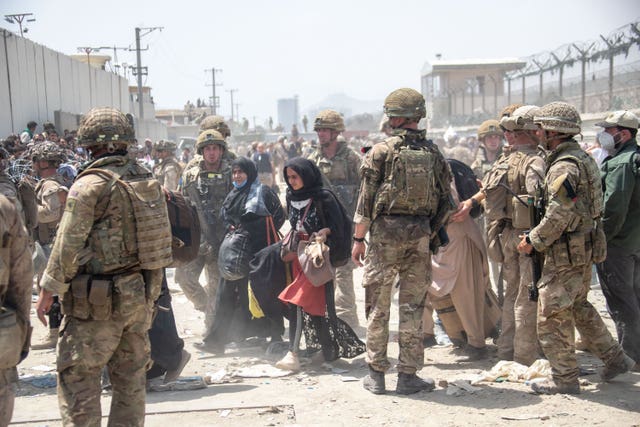
The Refugee Paralympic Team (RPT) believe their presence at the Tokyo Games can provide hope and solidarity for people being forced to flee Afghanistan.
Thousands of Afghans have scrambled to leave their home nation after the Taliban seized back control of the country.
The surge in numbers comes on top of the 2.2million refugees already in neighbouring countries and 3.5m people left homeless within Afghanistan’s borders.

RPT chef de mission Ileana Rodriguez, who will lead a team of six athletes in the Japanese capital, expressed her support for those affected by the ongoing conflict and political instability.
“Certainly it’s very sad what’s happening in Afghanistan and our heart goes out to all the people of Afghanistan,” said the former Paralympic swimmer.
“We are here representing the people of the world who are refugees, so all of us have been working very hard to send a message of hope and make sure that this team shows that.
“I am sure these athletes are going to give all of what they have during these Games to really support all the refugees out there and make them feel hopeful and the same message goes to the people of Afghanistan, for sure.”
Rodriguez’s current team already includes one Afghan refugee, swimmer Abbas Karimi.
He is joined by Iranian refugee Shahrad Nasajpour (discus), Burundian refugee Parfait Hakizimana (taekwondo) and Syrian refugees Anas Al Khalifa (canoeing), Ibrahim Al Hussein (swimming) and Alia Issa (club throw).
Issa, who suffered brain damage after contracting smallpox and will join Karimi as a flagbearer at Tuesday’s opening ceremony, will make history as the team’s first female member and aims to inspire other women in similar situations.
“I never believed that I would be the first woman refugee Paralympian. It’s a big honour for me to be in this team. I’m a little nervous about it,” said the 20-year-old, who lives in Greece.
Press conference with the #RefugeeParalympicTeam!
Alia Issa, a refugee from Syria will be the flag bearer alongside Abbas Karimi. 💙#Paralympics #Tokyo2020 @Tokyo2020 pic.twitter.com/zqukAQsxRr
— Paralympic Games (@Paralympics) August 23, 2021
“I want to share with women around with disabilities: don’t stay at home. Try every day with sports to be outside in the world. I hope that I am the first example to follow.
“I want to be an example for all the refugees to follow their dreams.”
A press conference to introduce the team was preceded by a letter of support from Bayern Munich and Canada star Alphonso Davies.
The footballer was born in a refugee camp in Ghana to Liberian parents who fled the civil war in their home country.

“Not everyone understands the journey you have been on, but I do and that’s an important part of what made me who I am,” read his letter.
“You are role models now with the power to inspire others; make no mistake, what you are about to do in Tokyo will change people’s lives.
“There will be refugees who through watching you succeed will believe they can too.”
Japan’s own poor record of accepting refugees was also questioned.
The host nation has a significantly lower rate of accommodating asylum seekers than other developed countries.
Cuba-born Rodriguez, who left for the United States when she was a teenager in the hope of finding better treatment for a malformation of the spine which left her paralysed, wants the Games to be a catalyst for change.
“We’re very grateful for the countries that home refugees and we encourage countries that can support refugees to do it,” she said.
“We hope that that’s a strong message that we can leave with the people of Japan as well.”


Comments: Our rules
We want our comments to be a lively and valuable part of our community - a place where readers can debate and engage with the most important local issues. The ability to comment on our stories is a privilege, not a right, however, and that privilege may be withdrawn if it is abused or misused.
Please report any comments that break our rules.
Read the rules here